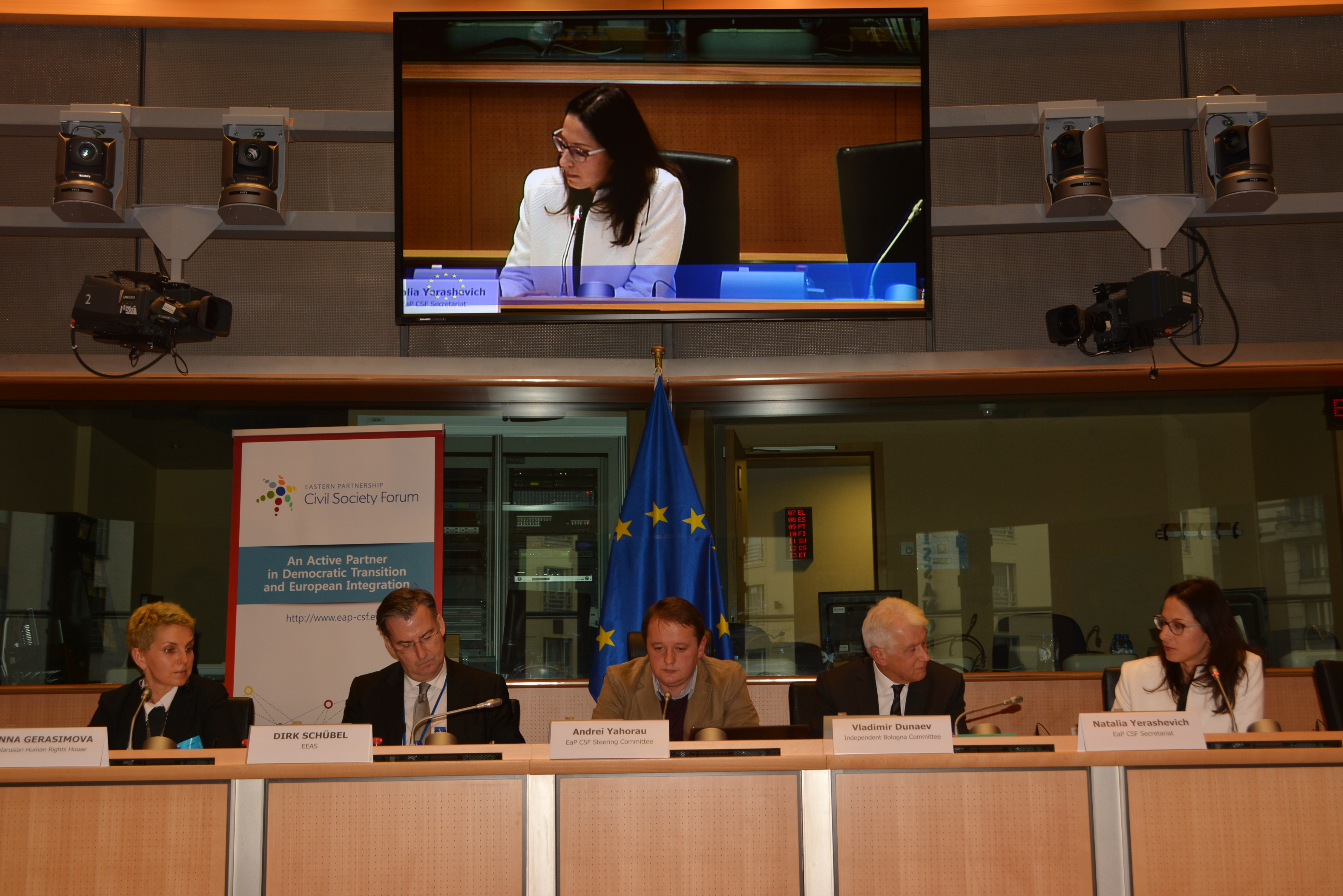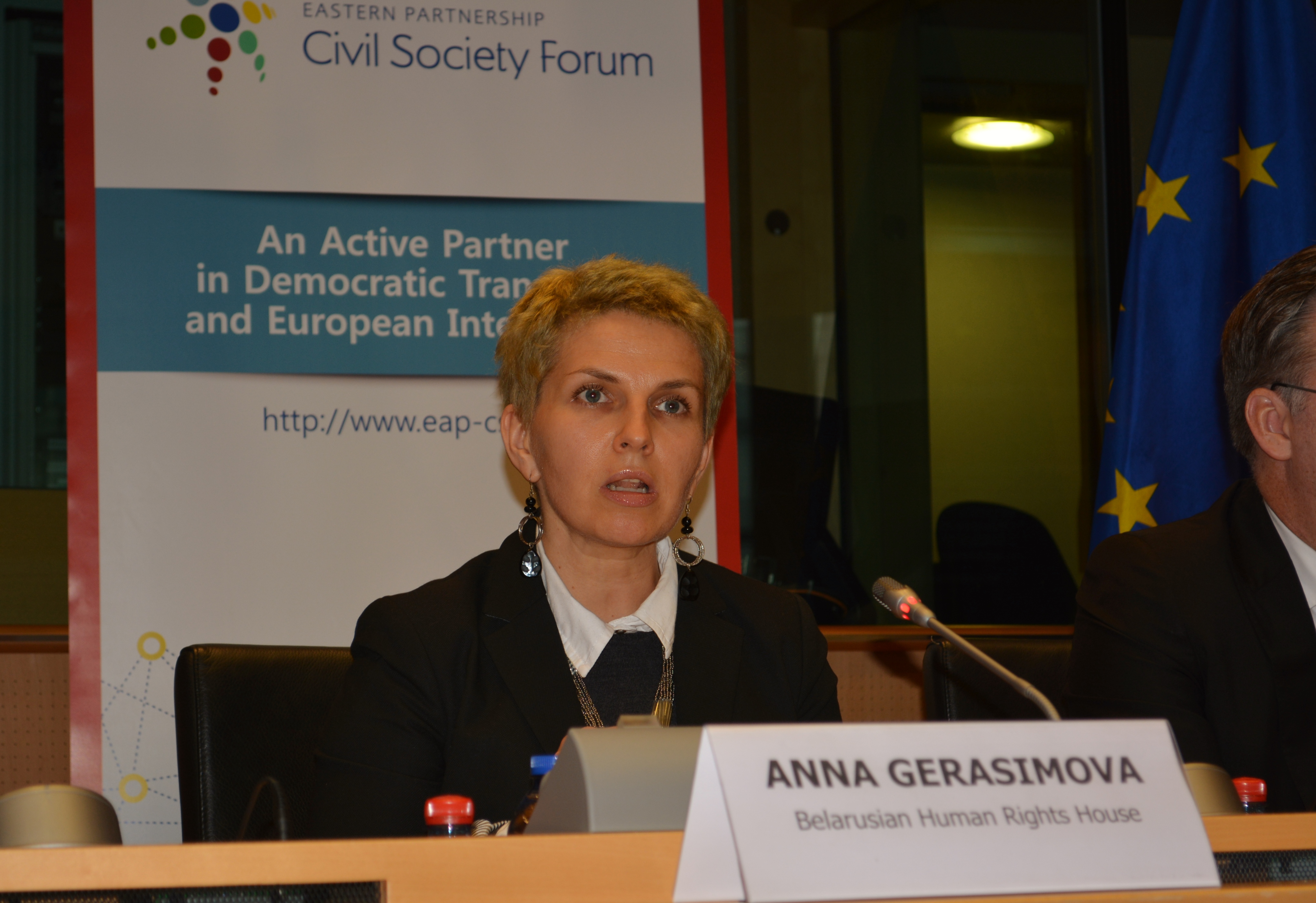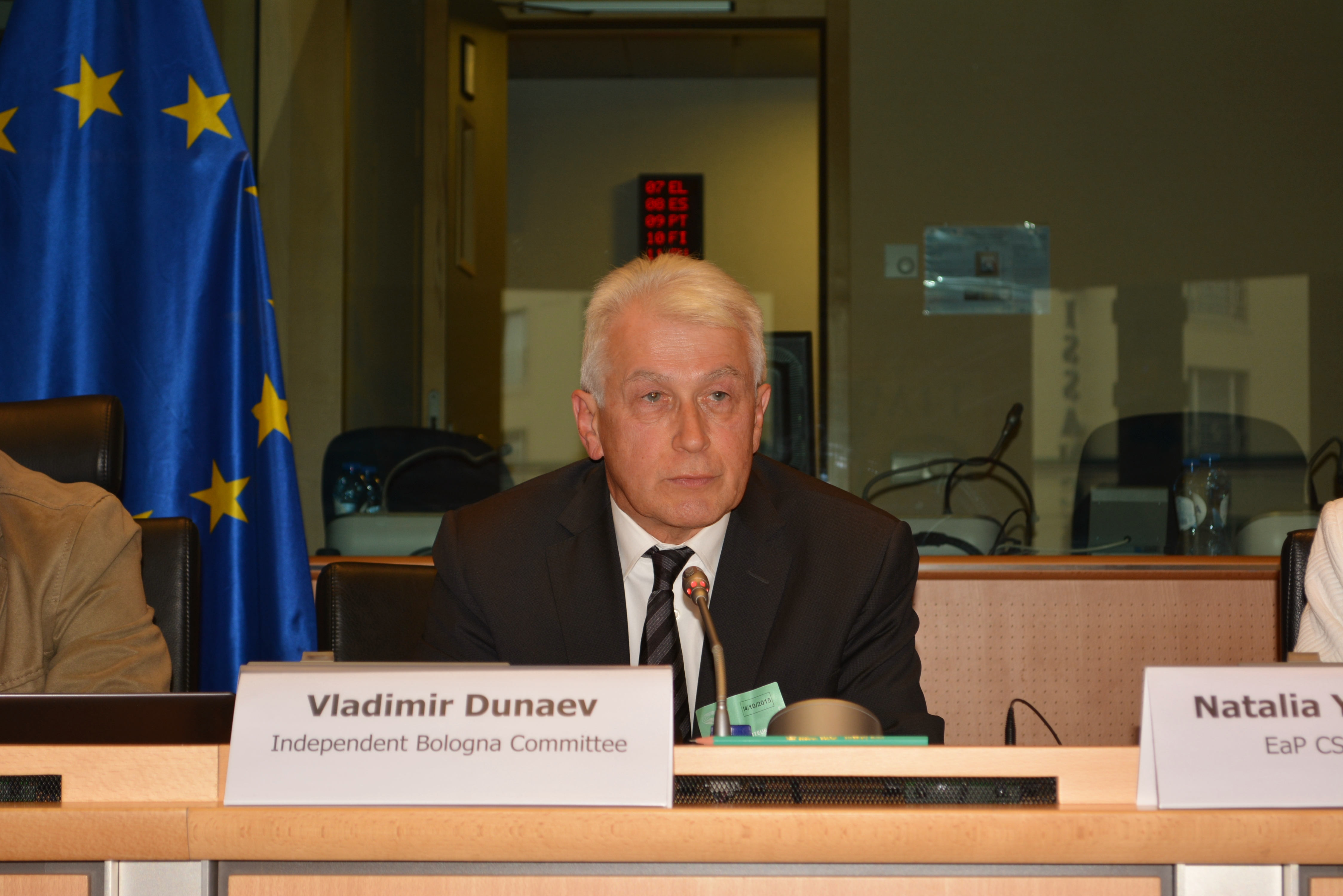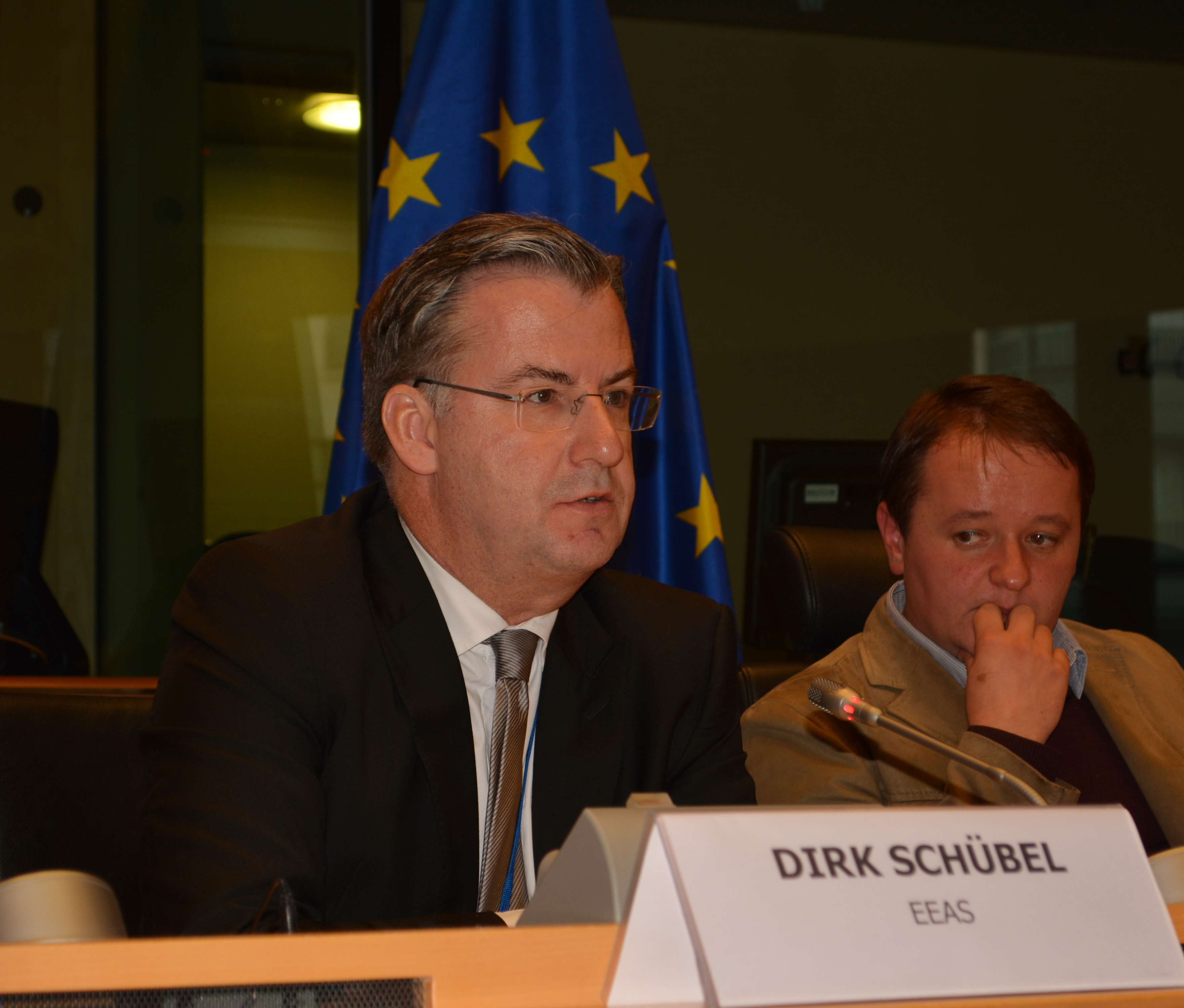|
IN THE SPOTLIGHT |
Eastern Partnership Civil Society Forum
|
|
EaP CSF Held a Debate on EU-Belarus Relations in the European ParliamentOn 14 October, in the wake of the Belarusian presidential election, the panel discussion on the state of EU-Belarus relations was organised by the EaP CSF and hosted by MEP Bogdan Zdrojewski at the European Parliament. The panellists, Dirk Schübel (European External Action Service), EaP CSF Co-Chair Andrei Yahorau, Anna Gerasimova (Barys Zvozskau Belarusian Human Rights House) and Vladimir Dunaev (Belarusian Independent Bologna Committee) deliberated on the future of the EU-Belarus relations. The fruitful discussion covered a number of topical issues affecting EU engagement with Belarus, and the role of the civil society in pushing forward reforms in the country. The event started with the presentation of the human rights situation in Belarus by Anna Gerasimova who noted that the status quo remains unchanged with violations of systematic nature. “Belarus thus needs systemic, not cosmetic changes,” stated Ms Gerasimova. She recommended that EU should develop under the existing Human Rights Dialogue with Belarus a comprehensive human rights roadmap with specific benchmarks and deadlines for implementation in cooperation with civil society, including unregistered organizations. Vladimir Dunaev further discussed the accession of Belarus to the European Higher Education Area stating that the conditional accession to the Bologna Process is a positive development, even if viewed sceptically by some observers. For the first time, the admission of a candidate country was based on the condition for the country to significantly reform the higher education system in line with European standards. This was possible thanks to the coordinated efforts of the EU and Belarusian civil society. As a result, Bologna Process Roadmap for Belarus adopted with input from the civil society provides the benchmarks allowing for effective monitoring of the progress of higher education reform. Given that the Belarusian civil society has a unique chance to actively influence the process by taking up the watchdog function and mobilizing broad public support for reforms, all relevant stakeholders should get involved in the Bologna Process in order to fully use this opportunity. In particular, the inclusion of the Belarusian National Platform in BFUG (Bologna Follow-up Group) Coordination Group for roadmap implementation should be considered. In support of these ideas, Co-chair of the EaP CSF Steering Committee Andrei Yahorau, stated: “Higher education is the field where civil society could have a real chance to influence Belarusian government”. Mr Yahorau noted only minor improvements in the electoral process along with the crisis on the political scene, absence of the dialog between civil society and authorities, economic crisis and need for structural reforms. Thus, commenting on the EU sanctions against Belarus, Mr Yahorau expressed the position that the suspension of sanctions could give a start to a new era of engagement with Belarus and open a window of opportunity for reforms in a number of sectors of mutual interest for the EU and Belarus. However, the EU should base its policy towards Belarus on a principled approach and combine various types of conditionality without hesitating to apply strict conditionality in most problematic areas, like human rights and judicial reform. Head of the EEAS Division ‘Eastern Partnership – bilateral’ Dirk Schubel explained the EU position on sanctions against Belarus by stressing that the EU took a measured approach. Important positive steps were taken from the government side, particularly with the release of political prisoners and constructive approach to the Ukraine crisis. As a result, the EU decided to extend the sanctions after the October deadline but suspend their use until the next review in February, based on the analysis of the final OSCE/ODIHR report on elections. Mr Schübel l thus concluded that “after the suspension of sanctions, the ball is in Belarus' court” while civil society should remain engaged in the cooperation with the EU and be firm in supporting continuous EU-Belarus dialogue. |
Project funded by the European Union
![]()











